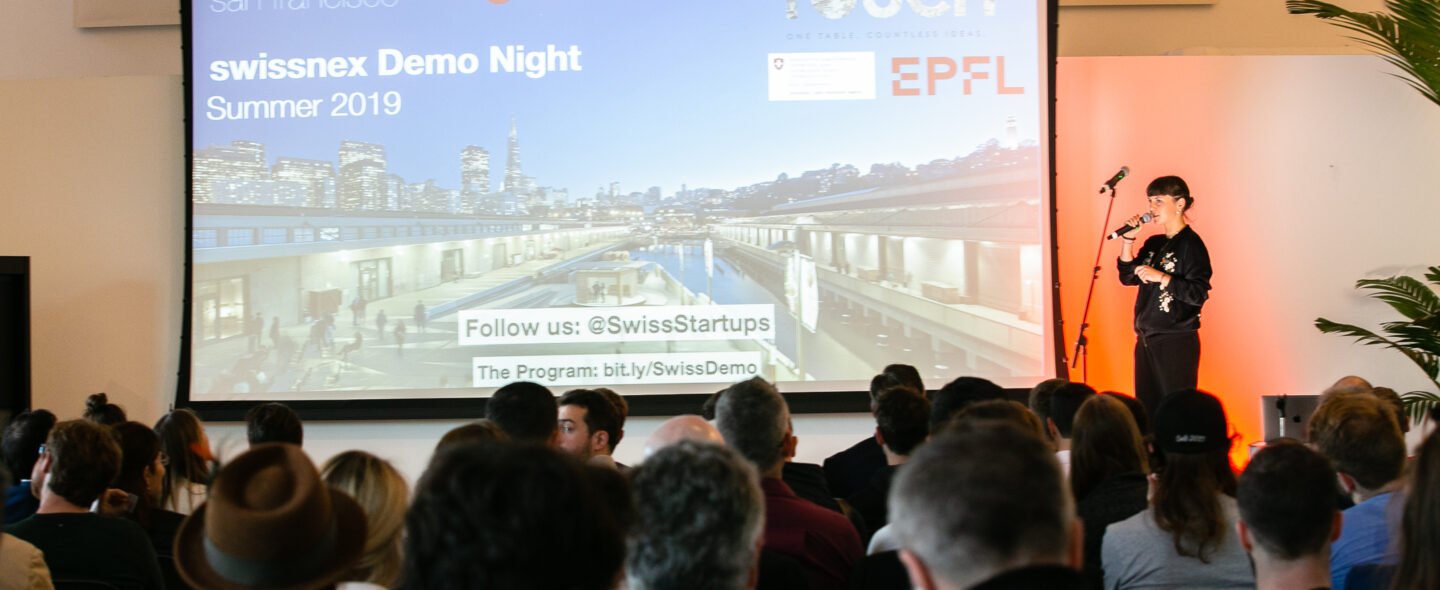
Published on March 3, 2020
Entrepreneurs, Tell Your Story!
As down-to-earth, true-to-ourselves Swiss, we like to look at Americans with a hint of snootiness, smiling at their tendency to put themselves forward, use superlatives, and employ catchphrases and marketing language when speaking about simple things such as the breakfast they just ate. In Switzerland, we like to stick with the facts, be thoughtful and balanced in our choice of words and are suspicious of exaggerations. Being professional means being serious and dry, using data and details to make an argument.
In our daily work connecting Swiss startups, academics and corporates with the Silicon Valley ecosystem, we’re in a front row seat to witness these cultures clash – and transform. Upon arrival, most Swiss visitors are reserved, quiet, self-effacing.
After mingling, meeting and exchanging with locals over the course of a visit, Swiss people tend to loosen up and come to appreciate the informality, openness and lightness – and understand, that being professional and being jovial can well go together.
Silicon Valley entrepreneurs have an outstanding ability to connect what they do to their personal journey, their background, their purpose, their passion, and weave a powerful story, with one important protagonist: “me”.
However, what many Swiss startups attending our bootcamps don’t seem to fully grasp is the importance of the Origin Story: the Pourquoi Story, the Founding Myth. Silicon Valley entrepreneurs have an outstanding ability to connect what they do to their personal journey, their background, their purpose, their passion, and weave a powerful story, with one important protagonist: “me”. What the Swiss might decry as self-centeredness is based on the simple realization that a good pitch requires an emotional hook: where did this all start? Why do I care about this? What is it that drives me? And why should you care about it, too?
Take the founders of Creator, a new burger joint employing robots to cook and compile burgers more efficiently and consistently. The Co-Founder and CEO, Alex Vadracostas, has what Techcrunch calls the “superhero origin story”. The son of immigrants who owned a diner, he grew up flipping burgers and recognized the inefficiencies of the process. He started building a robot in his garage in Southern California, before moving to San Francisco, meeting his co-founder and launching a company in 2009.
Or the founders of JUST, a plant-based protein company. Josh Tetrick, who’s struggling single mom couldn’t afford healthy, environmentally conscious food, despite her son’s heart condition. He and his brother are now out to conquer the egg market with a more healthy and eco-friendlier vegan egg alternative based on the mung bean.
Who would not find some spark in these stories they can relate to?
Not raw data, but a story is the most powerful tool to convey a message. It transports us into other people’s worlds. Stories are what it means to be social creatures: we connect to and care about others, even strangers, if we can relate to them.
Scientists have shown that, when we hear a story, our brain emits cortisol, which heightens our attention, and oxytocin, the peptide hormone that plays a significant role in prosocial behaviors such as building trust and attachment with individuals. It’s the hormone that enables us to relate and identify with the protagonist in a story. A 2009 study by neuroeconomist Paul Zak from San Diego State University demonstrated that the combination of cortisol and oxytocin released when we hear a powerful story, positively affects generosity. Subjects in one of his experiments were more likely to give money to others or donate to a cause after watching a animated video of a father and his dying 2-year old son.
Storytelling changes behavior by changing our brain chemistry. It might even make someone invest in a startup that has little to show yet but one founder’s big dream.
In other words: storytelling changes behavior by changing our brain chemistry. It might even make someone invest in a startup that has little to show yet but one founder’s big dream.
What is it then that we can learn from our American peers? By turning a professional presentation into a personal story, we can create connection and empathy. Telling someone the story about my very personal “Why” does not detract from the seriousness of my endeavor, but in fact boosts my credibility by highlighting my commitment and passion. At the same time, when told well, my story will trigger an emotional, empathic response, making others more likely to support my cause.
While Swiss startups easily match the technological depth and innovation potential of our Silicon Valley counterparts, we won’t be able to build the tribe of supporters needed for any new venture without understanding the importance of good storytelling.
Written by Gioia Deucher, CEO, swissnex San Francisco